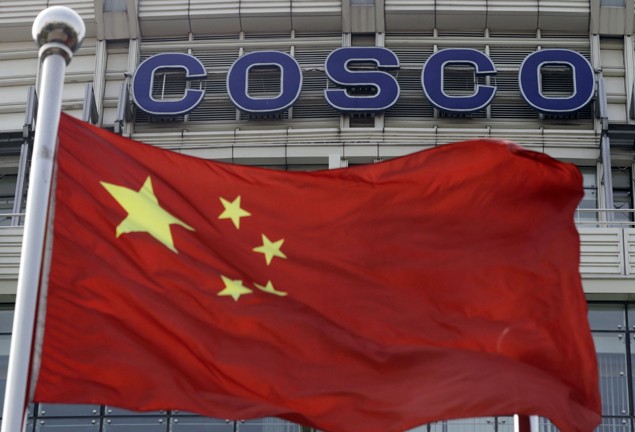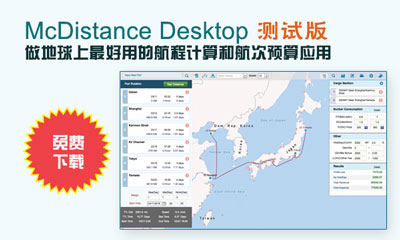China Extends Graft Investigations To Shipping Industry, COSCO Exec Resigns

A Chinese national flag flies in front of COSCO’s headquarters in Beijing in this August 26, 2010 file photo. (c) REUTERS/Barry Huang
![]() HONG KONG/SHANGHAI, Nov 8 (Reuters) – China’s investigations aimed at rooting out corruption have now extended to the shipping industry, with China COSCO Holdings saying that one of its top executives is the subject of government inquiries.
HONG KONG/SHANGHAI, Nov 8 (Reuters) – China’s investigations aimed at rooting out corruption have now extended to the shipping industry, with China COSCO Holdings saying that one of its top executives is the subject of government inquiries.
COSCO, China’s largest bulk shipping company, announced on Friday that its vice president, Xu Minjie, had resigned – a day after it said he was “under investigation by the relevant authorities”, phrasing used in China to describe corruption investigations.
The company’s brief statement to the Shanghai stock exchange on Friday said that there were no disagreements between Xu and the board but gave no further details. The company did not answer Reuters’ calls seeking comment.
A former COSCO Group chairman, Wei Jiafu, has also been prevented from leaving China, the Beijing Times said in a report citing unidentified company sources that was reposted by the official Xinhua news agency.
The reports of Wei having been banned from leaving China were baseless, COSCO Group said in a statement on Friday, vowing to comply with the country’s anti-graft procedures. It declined further comment on the matter.
COSCO shares fell by as much as 6.9 percent in Hong Kong on Friday to nine-week lows and were set for their biggest one-day fall since early July.
Chinese President Xi Jinping has identified corruption as a threat to the ruling Communist Party’s survival and has launched a sweeping campaign against it, pledging to take on top-level “tigers” and lowly “flies”.
As part of that campaign, China launched a series of graft investigations into the energy sector, announcing in August and September that five former senior officials of the country’s biggest oil business, China National Petroleum Corp, were under investigation for “serious discipline violations”.
REFORM AGENDA
The latest move comes as the Communist Party leadership prepares for a four-day plenum on Saturday to set a reform agenda for the next decade, including the potential overhaul and increased oversight of large state-owned enterprises (SOEs), including the likes of COSCO.
China International Maritime Containers Group , where Xu serves as a non-executive director, said in a stock exchange filing on Friday that the investigation “will not have material adverse impact” on the group because Xu was not involved in daily operations.
A Chinese shipping industry website earlier reported Xu was under investigation for corruption. The story was later removed from the website, though other Chinese news portals continued to carry it.
Xu is believed to be one of the first big names from China’s shipping industry to be caught up in Xi’s crackdown.
COSCO has been hit by a weakening global economy and a glut of ships since early 2011. Though it appears to be on track to return to profit this year, analysts have noted lingering oversupply.
Its parent, COSCO Group, in July replaced Wei with its president and director Ma Zehua amid a downturn in the global shipping industry.
COSCO last month reported a net loss of 1.04 billion yuan ($171 million) for July-September, according to Reuters’ calculations. The company, controlled by state-owned China Ocean Shipping (Group) Co, has posted losses for two straight years. A third year of losses would trigger a delisting from the Shanghai stock market.
COSCO Group Chairman Ma Zehua said in August that, with the global dry bulk market improving in the second half, the company was confident of turning a profit for 2013 after a narrower first-half net loss.
COSCO has this year sold its logistics business, stakes in a container manufacturer and office properties to try to return to profitability. It also controls port operator and container leasing firm COSCO Pacific. ($1=6.0927 Chinese yuan) (Writing by Gabriel Wildau and James Pomfret; Additional reporting by Keith Wallis in Singapore and Twinnie Siu in Hong Kong; Editing by Ian Geoghegan and David Goodman)
© 2013 Thomson Reuters. All rights reserved.



